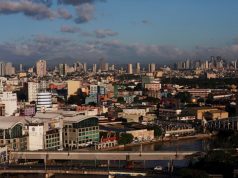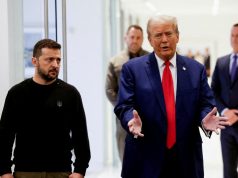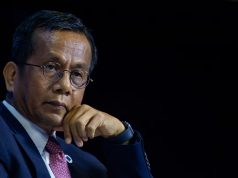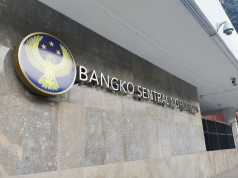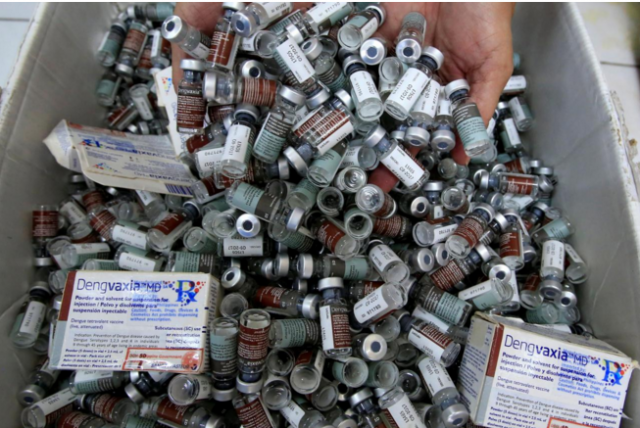
Public Attorney’s Office Forensics chief Erwin Erfe is drawing parallels between the investigation into the deaths being attributed to the Dengvaxia vaccine project and the growing anti-vaccination movement in the United States.
Erfe in a series of Facebook posts likened the ongoing investigation into the previous administration’s controversial vaccination project with the anti-vaccination movements calls for an investigation into the vaccine industry.
“We are not alone in the Dengvaxia Crisis. The U.S. is experiencing its own autism epidemic linked to MMR (measles, mumps and rubella) vaccine and multiple sclerosis in HPV (human papilloma virus) vaccine,” he wrote.
In another post, he praised United States President Donald Trump, who previously voiced his belief in the supposed link between autism and vaccines, for speaking his mind on the issue.
“I admire Pres. Trump for speaking his mind on vaccines. A president who places the safety and welfare of his people first over pharma companies,” Erfe, a physician and a lawyer, wrote.
Some have countered Erfe’s beliefs, questioning his choice of scientific literature to read.
Dr Erwin Erfe should read more peer-reviewed medical journals. Ethically problematic to spread unfounded or inconclusive medical statements. https://t.co/no650Vesx9
— E Gamboa (@SurgeonPilgrim) November 20, 2018
Vaccine scare: Old and questionable
Skepticism about vaccination has been present since its invention in the late 19th century. Some medical journals observed that the recent wave of skepticism was the result of celebrities voicing their skepticism during television appearances as well as natural medicine advocates pushing for natural remedies instead of medicine produced by larger pharmaceutical companies.
The recent anti-vaccination movement has been gaining traction even among some medical practitioners in other countries. One of the first advocates of the movement, Andrew Wakefield, was a doctor who claimed that the MMR vaccine was not properly tested before being put to use. In a study he wrote, he argued that there was link between autism in children and the MMR vaccine.
The British Medical Journal later argued against his findings, pointing out that he had falsified his data.
One study published by the US-based National Center for Biotechnology Information in 2018 argues that the growing anti-vaccination sentiment led to sudden outbreaks of measles and other diseases which were already suppressed. It also observed that social media gave the anti-vaccination movement an avenue to spread its beliefs, leading to a rising decline in vaccination despite scientific journals that debunked Wakefield’s findings.
The same journal found that the vaccine scare resulted in parents’ general reluctance to avail of immunization services. The US Centers for Disease Control and Prevention in January 2018 also found that 85 percent of the young children who passed away from influenza in recent years were not vaccinated.
The World Health Organization meanwhile maintained its support for global immunization initiatives, saying that studies show that vaccination prevents 2 to 3 million deaths annually.
According to the health agency, vaccination initiatives resulted in the eradication of the dangerous Meningitis A epidemic in Africa and childbirth-related tetanus in South East Asia, as well as an 84 percent decline in measles-related deaths between the years 2000 and 2016.
Drawing parallels
The Philippines’ Public Attorney’s Office claimed that a series of deaths in public school students was tied to Dengvaxia, an anti-dengue vaccine administered by a vaccination project during the administration of former president Benigno Aquino III. Those criticizing the Dengvaxia project claim that the students who passed away were injected with the vaccine.
Criminal complaints were filed against former health secretary Janette Garin and incumbent health chief Francisco Duque in November 2018, alleging their liability for the supposed Dengvaxia-related deaths.
The Department of Health in March 2018 cautioned the PAO against causing hysteria, saying that “irresponsible comments” resulted in a public scare that caused students to refrain from availing of the government’s free immunization programs.
“Our programs are suffering as people are scared to have their children vaccinated even for preventable diseases like measles and polio.”
— Health Secretary Francisco Duque
The House of Representatives is currently conducting a probe into the controversy surrounding the Dengvaxia project.
The growing anti-vaccination movement in the United States received support from its president, who had cautioned against vaccination even before his election.
Healthy young child goes to doctor, gets pumped with massive shot of many vaccines, doesn't feel good and changes – AUTISM. Many such cases!
— Donald J. Trump (@realDonaldTrump) March 28, 2014
He pledged to investigate the vaccine industry early in his administration but later hired pro-vaccine health officials into his administration.




